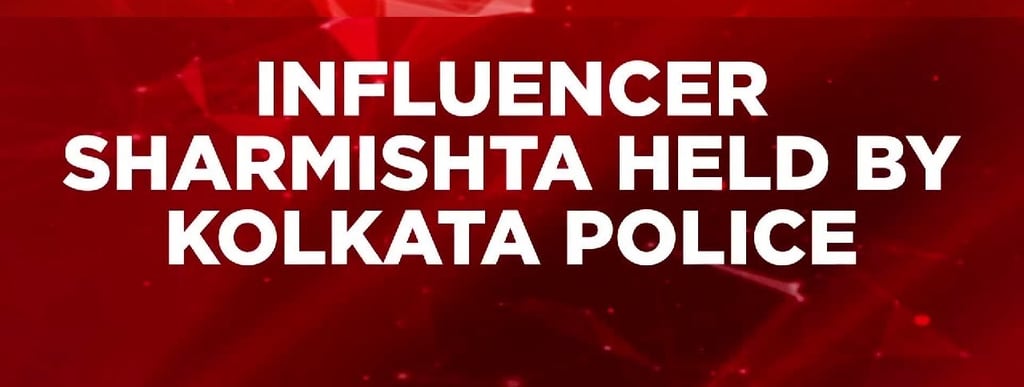Legal Bodies Rally Behind Law Student Arrested Over Instagram Video, Slam Action as Biased and Unlawful
The Delhi Bar Council has called for the immediate release of 22-year-old law student Sharmistha Panoli, calling her arrest over a deleted Instagram reel politically biased and legally unwarranted.
Nadeem Saifi | Advocate
6/1/20251 min read


The arrest of Sharmistha Panoli, a 22-year-old law student and Instagram influencer, has stirred nationwide debate, with senior legal authorities calling it an overreach of power. The Delhi Bar Council has strongly objected to her detention and demanded her immediate release.
Originally from Kolkata and currently studying law in Pune, Sharmistha was arrested late on May 30 by the Kolkata Police from Gurugram. The arrest was based on a now-deleted Instagram video that reportedly mentioned "Operation Sindoor," which some found objectionable.
She was then taken to Kolkata, where a local court ordered that she be kept in judicial custody until June 13.
Many lawyers and social media users have expressed concern about how the case was handled. Critics argue that the arrest was disproportionate, especially since Sharmistha had deleted the video and publicly apologised soon after.
Surya Prakash Khatri, Chairman of the Delhi Bar Council, strongly condemned the police action. In his statement, he said:
“Arresting a young law student over a social media video, which she took down and apologised for, is unacceptable. This seems more like a political move than a legal one.”
He emphasised that the Delhi Bar Council believes in protecting constitutional rights and that Sharmistha should be released immediately to maintain public trust in justice.
Manan Kumar Mishra, the Chairperson of the Bar Council of India, also voiced concern on June 1, calling the arrest a serious attack on freedom of speech and expression.
“Freedom of expression is a core part of our democracy. Taking such harsh steps against a student is unjustified,” he said.
Sharmistha faces charges under several sections of the Indian Penal Code, including:
Promoting hatred between communities
Hurting religious sentiments
Deliberately provoking public unrest
Legal experts say these are serious accusations, but the way they have been applied in this case raises important questions about fairness and intent.
The incident has sparked fresh discussions about police conduct, free speech, and how authorities respond to social media activity — especially when it involves young voices and dissent.
Altius Astra Attorneys
A premier law firm based in Delhi, India, offering legal representation across various practice areas for citizens rights and interests.
© 2025. Altius Astra Attorneys. All rights reserved.
Contact Us
📞 9899290789, 9818786756
📧 contact@altiusastra.com
3C-ED Block, Madhuban Chowk, Pitampura, Delhi-110034
DISCLAIMER
